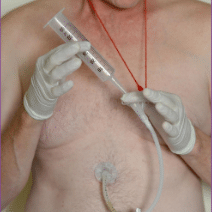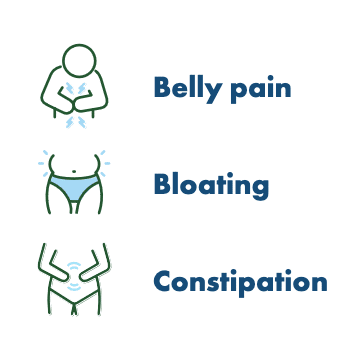6 Tips for Caring for a Loved One with a Feeding Tube
Providing care for a child or other loved one with a serious health condition is no easy task and adding tube feeding into the mix can make it seem almost impossible. If your loved one is going to be starting on tube feeds, these tips can help you prepare so you’ll be a pro in no time.
1. Get Educated
The experience of transitioning to tube feeding can be overwhelming for both you and your loved one. There is new equipment that must be used and a whole new routine to learn.
Luckily, your home care provider should be assigning a nurse, registered dietitian, or other professional to train you and your loved one. This training may either be done at home or before you leave the hospital or doctor’s office once the feeding tube is placed.
Someone from the home care company should also be available to you on an ongoing basis to answer any questions you may have.
Let’s discuss what you’ll need to learn about before you can start giving tube feeds.
2. Learn how to use the equipment
If you are going to be helping your loved one with their tube feeding, you will need to know how to give the tube feeding formula.
There are a variety of ways to give tube feeds, so it’s important to understand what needs to be done and what equipment you will need.
Does your loved one need a pump that requires batteries or electricity? Or will you use a large syringe to manually administer the formula?
3. Find out the tube feeding formula
Tube feeding formulas, often called enteral formulas, are specially made to provide calories in the form of macronutrients (protein, fat, and carbohydrates). They also contain micronutrients to meet your loved one’s daily needs for vitamins and minerals.
The doctor or dietitian will give you specific instructions on how much enteral formula your loved one needs each day in order to meet their calorie and nutrient needs. If you will be using an enteral formula in a can, they will tell you how many cans of formula to give per day.
Some people prefer to make their own tube feeding formula by using a blender. Blenderized tube feeds, as they are called, are not right for everyone because they can increase the risk for infection. It’s essential to talk to your loved one’s doctor before using blenderized tube feeds.
4. Learn how to handle cleaning and clogs
Once you learn how to use the feeding tube and find out how much enteral formula your loved one needs, you’ll then need to learn how to take care of the feeding tube equipment.
It’s important to practice proper hygiene before and after giving your loved one their tube feeds. This means washing your hands before and after feeding and cleaning the area around the entrance of the feeding tube as recommended.
You should also ask about troubleshooting the feeding tube. They are notorious for clogging and the home care nurse or dietitian will tell you how much water to use to flush the tube before and after feeding.
5. Keep an eye out for infections
If your loved one has a feeding tube that goes into their abdomen, this entrance point (called a stoma) should be monitored for infection.
Some signs of infection would be swelling, redness, or irritation of the area around the stoma. If your loved one is complaining of pain or discomfort from their feeding tube, it’s essential to call their doctor right away.
6. Ask how you can support them
Even if your loved one is able to take care of their tube feeds on their own, you can still provide them with emotional support.
If they are not taking in any food by mouth, you can ask if they would like you to eat your meals with them while they are doing their tube feeds. Everyone has different preferences when it comes to their tube feeds, so you should also respect their wishes if they prefer to use their feeding tube in private.
There is a lot to learn when it comes to tube feeding, but it should soon become second nature for you or your loved one. Whether you are the one giving the tube feeds to your loved one, or you are providing moral support for them, we want to acknowledge you for your role as a caregiver!
Related Resources:
Listen to our
latest Podcast!







